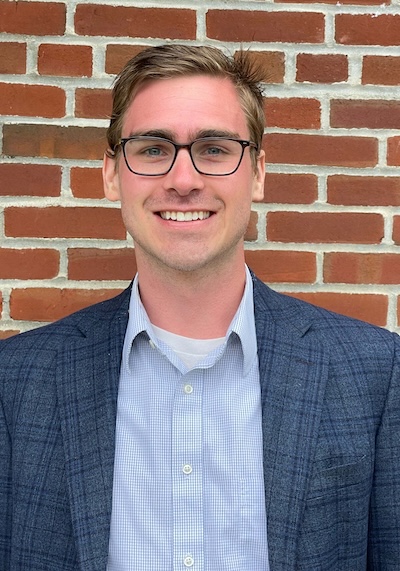News
Gov. stresses child care, energy strategy

Editor’s note: Addison Independent reporter John Flowers contributed to this report.
MONTPELIER — After climate change protesters were cleared from the Vermont House chamber at the start of Gov. Phil Scott’s annual State of the State address this past Thursday, Scott raised familiar themes in his speech: affordability and demographics.
The governor said he plans to propose initiatives in his forthcoming budget to protect the environment “without making Vermont less affordable for families and businesses.”
But he set the course for a clash with Democrats on their top climate initiatives, which he and other Republicans believe could raise prices for the state, and for Vermonters at the gas pump. He instead emphasized the importance of investing in electric vehicles while expanding the state’s renewable energy and storage sector, and changing regulations to give electric utilities “more flexibility in order to innovate.”
Scott’s vision conflicts with top Democratic environmental priorities, including two major pieces of legislation aimed at cutting carbon emissions that the governor has already indicated he would oppose.
In particular, the governor has expressed reservations over the Transportation and Climate Initiative, a multi-state push to charge companies for bringing fossil fuels into the state, and use the funds to invest in carbon-cutting initiatives.
Participating in the agreement could mean that gas prices in Vermont would increase by as much as 17 cents per gallon, according to an early version of the plan. Republicans have blasted the proposal as a “carbon tax.”
“I hear from Vermonters across the state, like those traveling long distances for work out of necessity, not choice, and others, like our seniors living on fixed incomes, who struggle to fill their gas tanks and heat their homes,” Scott said.
“I simply cannot support proposals that will make things more expensive,” he said.
Senate Minority Leader Joe Benning, R-Caledonia, said he thought the governor’s plan to increase investment into renewable energy and battery storage infrastructure is an effective way for Vermont to address climate change.
“I am absolutely in favor of this state government improving the infrastructure that will get us to where all those kids want us to be,” Benning said, referring to the protesters.
“The idea, however, that we are all by ourselves going to change the world climate situation is another disservice we are handing those kids,” he added.
Sen. Anthony Pollina, P/D-Washington, disagreed with Scott’s incremental approach to climate change.
“His reaction to climate change is to take very minor small steps, when in fact we are facing a real crisis and we need to lead,” Pollina said. “His response to climate change is quite meager.”
Rep. Diane Lanpher, D-Vergennes, said she understood the frustrations driving the climate protestors at the Statehouse and agreed that urgent action is required.
“But I believe civic discussion is always a better route to success,” she said. “I have been involved with my fellow Legislators, community members and our local students and can report my support for the array of actions that I believe will be passed this session.”
Sen. Christopher Bray, D-Bristol, identified clean energy as a priority for his constituents in Addison County, Huntington and Buel’s Gore.
“Gov. Scott framed his State of the State with the threat to our way of life because of the aging of our population and our declining working population,” Bray said. “In Addison County, we have two contrary trends working to build a stronger economy: our value-added food and agricultural businesses, and the ongoing development of our clean energy economy. The governor recognized these opportunities, and I plan to work with the governor this session to build on both of these local strengths.”
OTHER PRIORITIES
The governor also outlined plans for a universal after-school program, criminal justice reforms, and changes to Vermont’s landmark land use law — Act 250.
He stressed, yet again, his “biggest concern” for the state: Vermont’s aging demographics and shrinking population. The state’s working population, in particular, is dwindling, Scott stressed that only three of the state’s counties, including Chittenden County, have added workers, while the other 11 have lost a combined total of around 18,000 workers since 2008.
“If we don’t break this cycle, our institutions, including state and local government, won’t be able to afford what they currently do, or what they would like to do in the future, because costs will continue to rise much faster than our tax base can contain,” he said.
And he reiterated Thursday that he believes the state’s tax and fee burden is “still growing far too fast,” particularly property taxes. His administration is predicting that school spending will grow by $72 million in the next fiscal year, driving property tax bills up by 6%.
One of the largest initiatives the governor promised in his speech, was to create a “universal after-school network” to ensure “every child has access to enrichment opportunities outside of the current classroom time,” and sync up students’ schedules with those of their working parents.
He touted the after-school strategy, which was adopted by Iceland in the 1990s, as an effective way to significantly reduce substance abuse. Iceland has reduced youth cannabis use from 17% in 1998 to 6% in 2015 and drinking from 42% to 5%.
Lanpher, a member of the House Appropriations Committee, will play a significant role in funding decisions for Scott’s program priorities. She has been an active supporter and introduced bills in support of after-school programs and summer programming. She welcomed Scott’s support for these programs.
“No one has to look any further than our own Addison County school districts to see the incredible opportunities after-school and summer programs provide,” she said. “They offer opportunities to our children to explore activities and support our working families.”
Democratic leaders said they saw areas for potential collaboration with the Scott administration in 2020, highlighting governor’s intentions to modernize Act 250 and expand affordable housing.
House Speaker Mitzi Johnson, D-South Hero, said the speech sent “signals of working together and a real willingness to finally come to the table and work with (lawmakers) on issues.”
Johnson and Sen. President Pro Tem Tim Ashe, D/P Chittenden, both said they would consider the idea for a statewide after-school program, but had questions about how it would be funded.
Lawmakers briefed about the plan by Scott administration officials said it could take five years to adopt the program. The governor would like to form a task force this year that would design the after-school system and find a way to pay for it.
ADDITIONAL POINTS
Also of note from the Statehouse:
• Ashe and Johnson were hopeful about Scott’s willingness to support the Transportation and Climate Initiative, which will be finalized later this year.
• Scott said he is “optimistic” Act 250, Vermont’s land use law, will be modernized during the legislative session.
• Scott outlined plans for criminal justice reform, including eliminating license reinstatement fees for suspended drivers and supporting inmates who are transitioning back into the workforce.
However, Scott said there should be tougher mandatory minimums for human trafficking and that lawmakers should tighten restrictions for those who use an insanity plea when charged with a violent crime.
More News
News
County schools left wondering if promised federal funds will come
Local schools are wary of how the Trump Administration’s decision to withhold anticipated … (read more)
News
Local youth build community and theater skills at new Bristol camp
Through its programs, the company aims to help kids build community, self-esteem and other … (read more)
News
Plan for making energy transition is being updated
Addison County Regional Planning Commission officials are busy revising the region’s bluep … (read more)






